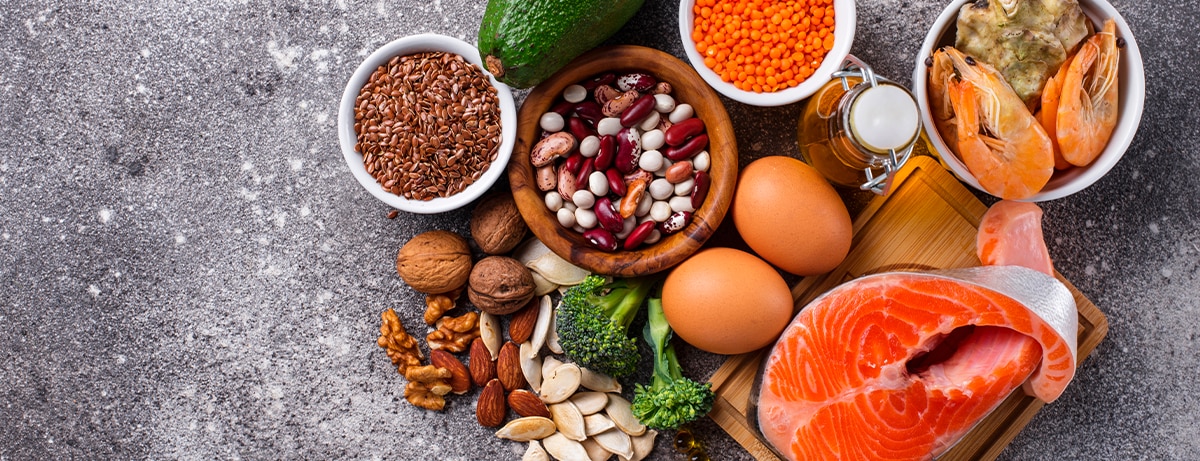15% off €35 or 20% off €45
4 tips to help balance your blood sugar levels

Your body uses the glucose in your blood as an energy source, so it needs to always have a certain level of blood sugar available.
However, certain factors can cause the blood sugar to be thrown off balance, causing either elevated or reduced levels. The resulting blood sugar ‘highs’ and ‘lows’ can lead to anxiety, cravings for sugary foods, fatigue, weakness, and a feeling of ‘brain fog’.1
For non-diabetics, you can usually prevent blood sugar imbalances through diet and lifestyle2. Here, we’ll discuss 4 ways you can help to keep your blood sugar levels stable, as someone without a diabetes diagnosis.
4 blood sugar balancing tips
There are a few lifestyle changes and healthy habits you can make to help you maintain healthy blood sugar levels and keep them steady.
From foods that lower blood sugar to staying hydrated, here are just 4 tips on how to keep your blood sugar balanced:

1. Avoid sugary foods including ‘simple’ carbohydrates
You should take care not to consume too many sugary foods in your diet as they will be delivered straight to the blood as glucose, leading to high blood sugar levels.5 As well as the more obvious sugars such as cakes, sweets, fizzy drinks, and biscuits, watch out for carbohydrates which also get broken down into sugar in your body.
‘Simple’ carbohydrates such as white bread, cereals and white pasta behave much like sugary food and can cause blood sugar to spike6. Avoid these simple carbohydrates in favour of ‘complex’ carbohydrates such as sweet potatoes and rolled oats which have a steadier conversion into glucose and low GI scores.7

2. Eat healthy fats & protein
Healthy fats could also help prevent the blood sugar spikes associated with simple carbohydrates. This is because eating healthy fats alongside carbohydrates stabilises blood sugar as fat slows the absorption of carbohydrates into the blood.9 Sources of healthy fats include avocados, nuts seeds, fish, and olive oil.10
Like healthy fats, protein is broken down into glucose much slower than carbohydrates which means your blood sugar levels won’t become rapidly elevated after eating a protein-based meal or snack11. Carrot sticks with hummus is a great protein-rich snack to keep blood sugar balanced.
Handpicked content: The vegetables and grains containing the most protein

3. Eat regularly
Researchers in Greece have found that eating six small meals a day is more effective in stabilising blood sugar than three large meals at longer intervals, so make sure to eat small amounts of healthy foods regularly.15
Handpicked content: Top tips for healthy meal planning
4. Drink plenty of water
Staying hydrated by drinking enough water is thought to help you control your blood sugar levels, as it helps to flush excess sugar out of your body – you should aim for around 6 to 8 glasses of water each day.16,17
Not drinking enough water can cause the amount of blood sugar in your body to become more concentrated, resulting in high blood sugar levels.18 So, staying hydrated by drinking enough water every day can help keep your blood sugar levels stable.
The final say
Taking care of your blood sugar levels is really important for your overall health and well-being, but it can be tricky because they tend to change every day.
If you're feeling unsure about your levels, it's always a good idea to speak to your GP for some advice. There are lots of different reasons why your levels might be fluctuating, and getting some professional advice can make all the difference.
If you're looking for a way to monitor your blood sugar levels at home, there are at-home test kits available. With these kits, you'll be able to better understand your levels and even bring your results to your doctor for further advice and information. It's a great way to stay on top of your health and make sure you're taking care of yourself!
1. https://www.diabetes.co.uk/high-low-blood-sugar-symptoms.html
2. https://www.nhs.uk/common-health-questions/food-and-diet/what-is-the-glycaemic-index-gi/
5. https://www.diabetes.co.uk/nutrition/simple-carbs-vs-complex-carbs.html
6. https://www.hsph.harvard.edu/nutritionsource/carbohydrates/carbohydrates-and-blood-sugar/
7. https://diabetes.org/healthy-living/recipes-nutrition/eating-well/fats
8. https://idmprogram.com/understanding-digestion-eat-carbohydrates-fat-fibre-vinegar-idm-3-2/
9. https://www.diabetes.co.uk/nutrition/fat-and-diabetes.html
10. https://www.diabetes.co.uk/nutrition/protein-and-diabetes.html
11. https://www.ncbi.nlm.nih.gov/pmc/articles/PMC6934661/
12. https://www.nhs.uk/conditions/low-blood-sugar-hypoglycaemia/
14. https://clinicaltrials.gov/ct2/show/NCT02248272
Advice is for information only and should not replace medical care. Please consult a doctor or healthcare professional before trying any remedies



